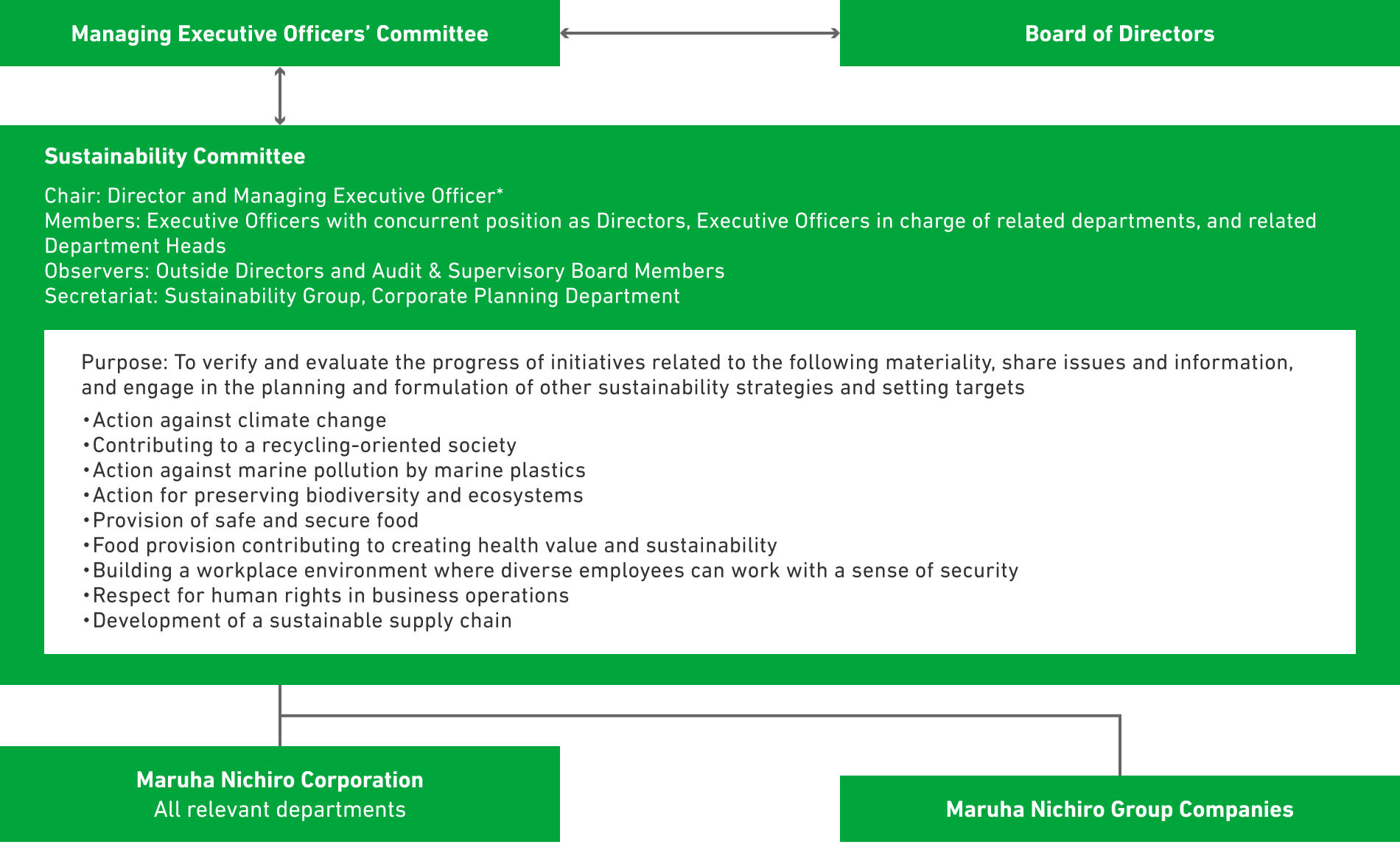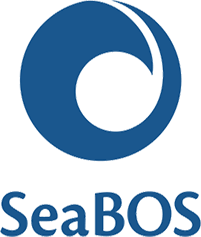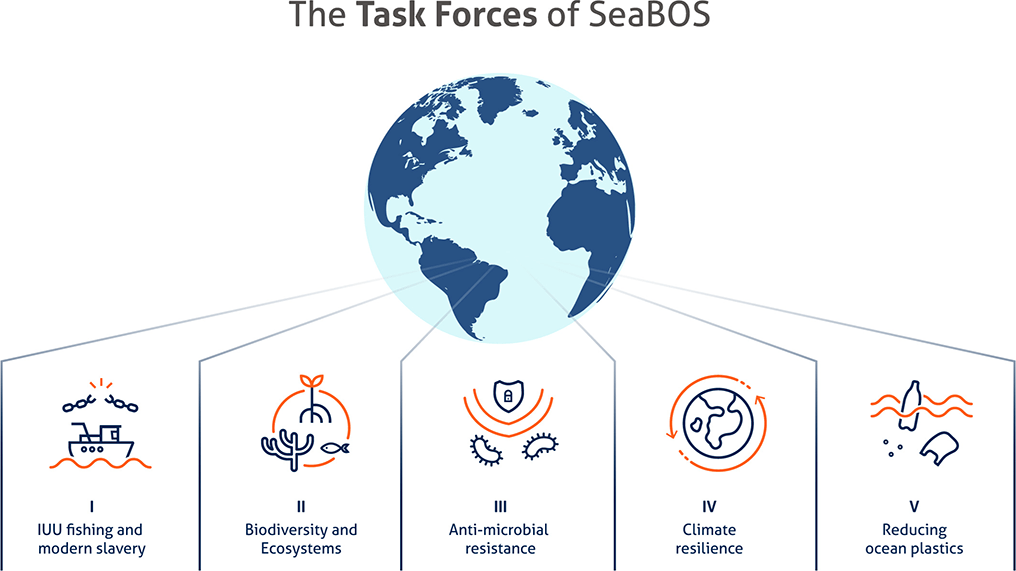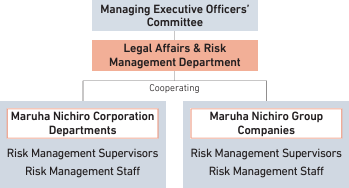Disclosures Based on the TCFD Recommendations
In fiscal year 2021, Maruha Nichiro Corporation announced its endorsement of the TCFD recommendations and joined the TCFD Consortium. That same year, the company began examining climate change scenarios and disclosing information aligned with the TCFD framework—covering “Governance,” “Strategy,” “Risk Management,” and “Metrics and Targets”—as recommended for climate change impacts. In fiscal 2021, scenario analysis was conducted for the aquaculture business. In fiscal 2023, scenario analysis was expanded to cover other businesses (fishing, seafood trading, overseas operations, processed foods, and ingredient distribution units) within the seafood value chain. In fiscal 2025, scenario analysis was refined to assess the impact of climate change on fishery resources. We will continue to enhance our financial disclosures related to climate change.

Governance
Maruha Nichiro Group's Sustainability Promotion Structure
The Maruha Nichiro Group established the Sustainability Promotion Committee directly under the Management Committee in 2018 to advance its sustainability strategy. Currently chaired by a Managing Executive Officer, the committee comprises members including the Representative Director of Maruha Nichiro Corporation, executive officers who also serve as directors, officers in charge of relevant departments, and heads of relevant departments. Outside directors and auditors participate as observers. The committee plans and formulates the overall group sustainability strategy, sets goals, and evaluates the activities of each group company. The Sustainability Promotion Committee meets quarterly, four times a year. Responsible officers and project leaders report on progress for each materiality, including “Biodiversity and Ecosystem Conservation” and “Addressing Climate Change,” followed by active discussion. Matters discussed by the Sustainability Promotion Committee are reported to the Board of Directors at least four times a year through the Management Committee.

Participation in Seafood Business for Ocean Stewardship (SeaBOS)
SeaBOS (Seafood Business for Ocean Stewardship) is a global initiative established in 2016. It brings together six major seafood companies and scientists researching oceans, fisheries, and sustainability to collaboratively lead science-based strategies and actions aimed at ensuring sustainable seafood production and healthy ocean environments.
It actively contributes to the United Nations Sustainable Development Goals (SDGs), particularly Goal 14: Conserve and sustainably use the oceans, seas and marine resources.
Currently, it is organized into the following five task forces, where discussions are held to find solutions:


Maruha Nichiro participated in the launch of SeaBOS. In September 2018, concurrent with the organization's establishment, Shigeru Ito, then President of our company, was appointed as its first Chairman and served in that role until October 2020. He currently serves as co-leader of Task Force V and as a member of Task Forces I, III, and VI.
Risk and Impact Management
For group-wide risk management in our business activities, we have established a framework centered on the Legal & Risk Management Department, with collaboration among Maruha Nichiro Corporation's various departments, risk management officers, and risk management personnel at group companies. For short-term, high-impact risks related to “environment” and “sustainability,” we identify, analyze, and develop countermeasures through our annual risk management program, reporting findings to the Management Committee. Additionally, medium- to long-term risks and opportunities related to ESG and sustainability are managed and discussed by the Sustainability Promotion Committee. Risks related to climate change and biodiversity conservation are positioned as particularly important risks. We manage and discuss risks and opportunities analyzed and evaluated using scenario analysis based on the TCFD framework and the TNFD LEAP approach, along with corresponding countermeasures.

Strategy
The Maruha Nichiro Group operates across a broad value chain centered on marine products, from production and procurement to the dining table. Climate change impacts the Group's business through effects on marine resources and raw material procurement, as well as operational disruptions caused by large-scale natural disasters. In response to the transition to a decarbonized society, we conducted scenario analysis based on the TCFD recommendations to identify potential business risks that could materialize due to climate change. In fiscal 2021, we conducted scenario analysis for aquaculture operations, and in fiscal 2023, we expanded this analysis to other business units (fishing, seafood trading, overseas operations, processed foods, and ingredient distribution) within the seafood value chain. We broadly analyzed the entire value chain under two global scenarios: a 1.5°C world where decarbonization efforts are advanced, and a 4°C world where warming progresses without significant mitigation measures. Furthermore, in fiscal 2025, we refined scenario analysis regarding the impact of climate change on resource levels for Alaska pollock and Peruvian anchovy.
* For details on the Maruha Nichiro Group's scenario analysis, please see below.
TCFD Scenario Analysis (2021,2023) (PDF: 532 KB/ 13 pages)
TCFD Scenario Analysis (2025) (PDF: 2.1 MB/ 13 pages)
Metrics and Targets
The Maruha Nichiro Group has defined “Addressing Climate Change Issues” as one of its materiality topics in its mid-term management plan “MNV2024: Creating the Future of the Sea and Life.” It sets its Key Goal Indicator (KGI) for 2030 as “Establishing a leading position within the industry regarding decarbonization and climate change.” One of its KPIs uses CO₂ emissions as a metric, aiming to reduce CO₂ emissions by at least 30% compared to fiscal 2017 levels by fiscal 2030 and achieve carbon neutrality by fiscal 2050. To reach these targets, the period up to fiscal 2030 is further divided into three phases with more detailed targets. Phase 1 (FY2022-FY2024) targets a 10% reduction in CO₂ emissions, Phase 2 (FY2025–FY2027) targets a 20% reduction, and Phase 3 (FY2028–FY2030) aims for a reduction of 30% or more. Ultimately, we will advance various initiatives to achieve carbon neutrality by the end of fiscal year 2050.

